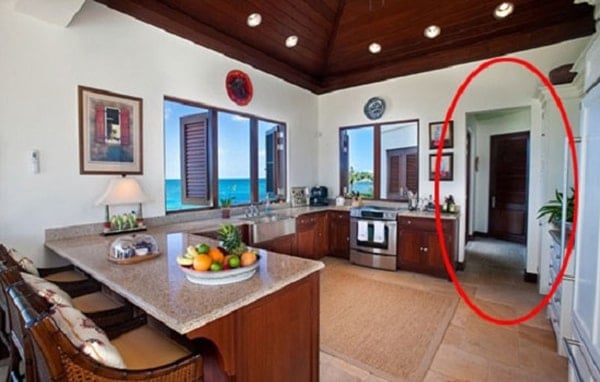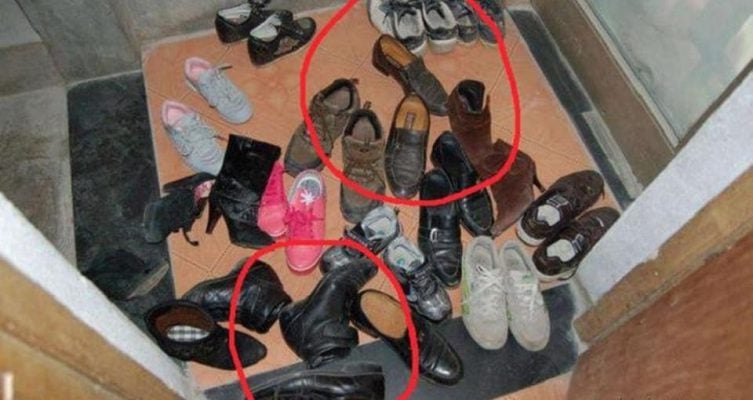The front door is not just an entrance but also a gateway that invites positive energy and fortune for the homeowners. Thus, according to traditional folk beliefs and feng shui principles, encountering the following five elements right after stepping through the front door can be inauspicious, impacting the family’s health, wealth, and peace.
1. Bedroom door directly facing the front door
In many modern apartments, especially those with limited space, it is common to find the bedroom door aligned with the main entrance. However, from a feng shui perspective, this arrangement is best avoided.
The front door serves as the gateway for energy and wealth to enter the home. When this energy flows directly into a private space like the bedroom, it can disrupt the balance of energy, affecting the quality of sleep and potentially leading to fatigue and stress. Additionally, privacy is compromised as the bedroom is immediately visible to guests upon entering the home.
Solution: Consider using curtains, room dividers, bookshelves, or decorative screens to create a gentle barrier, maintaining aesthetics while mitigating the negative feng shui impact.

2. Mirror reflecting the front door
Mirrors are commonly placed near the entrance for a last-minute check before heading out. However, if a mirror directly faces the front door, it can have unintended consequences.
According to folk beliefs, mirrors reflecting the entrance push away incoming fortune and prosperity. Scientifically, encountering your reflection immediately upon entering can be disorienting, especially for the elderly or young children. Additionally, mirrors with strong reflections can make the space feel colder and less inviting.
Solution: Position mirrors at an angle, avoiding direct alignment with the front door. Consider using artistic mirrors integrated with cabinets or artwork for both functionality and aesthetics.
3. Balcony or window directly in line with the front door
Homes designed with a straight axis from the front door to the balcony or window may fall into the “heart-piercing” configuration in feng shui, indicating that energy flows through without settling, making it difficult to retain wealth.
Moreover, when both the front door and balcony are open, strong air currents can cause sudden temperature drops, affecting the health of the elderly and young children. Outdoor dust, noise, and odors can also easily infiltrate the main living area.
Solution: Use curtains, plants, room dividers, or furniture arrangements to slow down the flow of energy, preventing rapid air escape and helping to retain positive energy and wealth within the home.
4. Bathroom located near or directly opposite the front door
A common design flaw in townhouses or apartments is positioning the bathroom near the main entrance. This can lead to unpleasant odors, dampness, and an uncomfortable feeling upon entering the home. From a feng shui perspective, this is a major taboo as the bathroom, being a yin space, conflicts with the yang energy of the front door, resulting in energetic disharmony and potential financial losses.
Solution: If structural changes are not feasible, keep the bathroom door closed at all times. Use essential oils, air purifiers, or air-purifying plants to mitigate odors. Consider hanging curtains or bead curtains to obstruct the direct line of sight.
5. Clutter or messy shoe racks by the front door

The entrance is the first impression of your home. A messy pile of shoes, trash bins, or random objects blocking the doorway not only looks untidy but also creates a sense of clutter and discomfort, affecting one’s mood.
From a feng shui perspective, clutter blocks the natural flow of energy, hindering wealth from entering the home and accumulating negative energy. This can lead to a string of unfortunate events and stagnation in the homeowner’s endeavors.
Solution: Utilize shoe cabinets with doors, combine shoe storage with seating, and avoid stacking shoes in plain sight. Keep trash bins, brooms, and mops away from the main entrance to create a more welcoming and prosperous space.
































